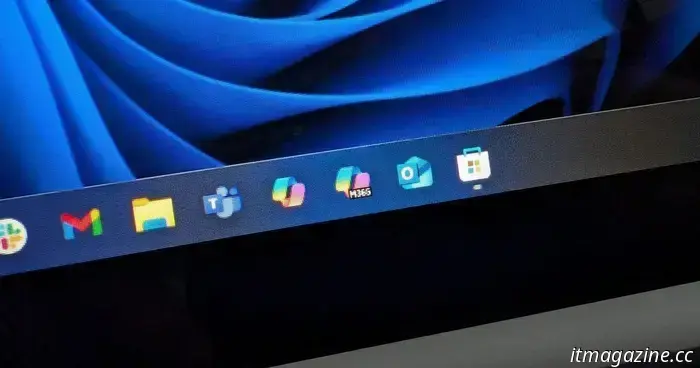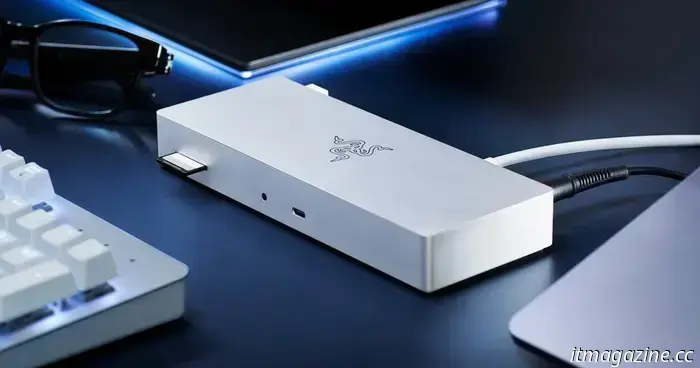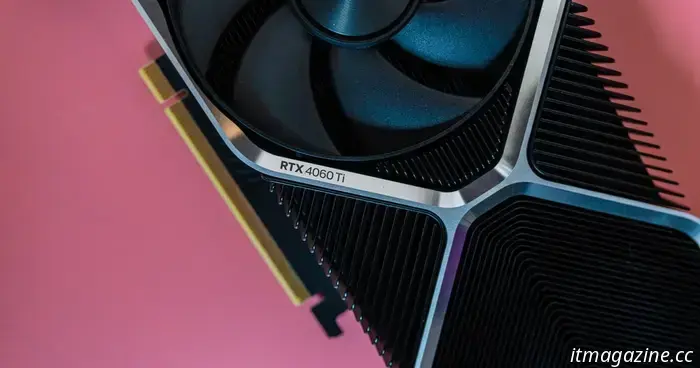
Microsoft is contemplating the creation of AI models to enhance the management of Copilot functionalities.
Windows Central
Microsoft might be moving towards creating AI models independently from its collaboration with OpenAI. Over the years, OpenAI has increased its influence within the industry, resulting in Microsoft losing its exclusive relationship with the organization. Multiple reports suggest that Microsoft is aiming to develop its own "frontier AI models" to reduce reliance on external sources for its services.
Since 2021, Microsoft and OpenAI have had a significant partnership. However, reports from January revealed concerns regarding their collaboration, particularly related to OpenAI’s GPT-4, with Microsoft stating that the model was excessively expensive and did not meet consumer expectations. Meanwhile, OpenAI has been involved in various business initiatives, announcing its $500 billion Stargate project, a partnership with the U.S. government to build AI data centers across the country. Additionally, the company recently completed an investment round led by SoftBank, raising $40 billion and achieving a valuation of $300 billion, according to Windows Central.
Currently, the two companies appear to be pursuing different objectives. Microsoft is particularly focused on developing and enhancing its own products and services. Although the company has not detailed its plans for creating in-house AI models, Microsoft AI CEO Mustafa Suleyman discussed with CNBC’s Steve Kovach that delaying AI model development for several months behind industry leaders could help reduce production costs and ensure the models are tailored to their specific use cases.
“It’s more cost-effective to provide a specific answer after waiting for the initial months when the frontier goes first. We refer to this as off-frontier. Our strategy is to operate as a close second, considering the capital requirements of these models,” Suleyman shared with CNBC.
Recently, Microsoft celebrated its 50th Anniversary and held a Copilot event to unveil multiple new features for Copilot, including Copilot Vision, Deep Research, Pages, Copilot Avatar, and Memory. Windows Central highlighted that these new AI capabilities would benefit from Microsoft's increased autonomy over its AI models.
Suleyman mentioned to CNBC that the partnership with OpenAI would last at least until 2030, indicating that while the brand is developing its own AI internally, it does not aim to produce "the most cutting-edge models." Nonetheless, this implies progress towards implementing its AI models.
Importantly, Microsoft promptly made the DeepSeek R1 reasoning model available on its Azure cloud computing platform and GitHub for developers following its industry debut in January. This move was perceived as Microsoft’s attempt to reduce its dependence on OpenAI for AI requirements. Additionally, the company was reportedly working on its proprietary models and incorporating more third-party models to enhance its Microsoft 365 Copilot AI product, as noted by Reuters at the time.
Fionna Agomuoh is a Computing Writer at Digital Trends, addressing a variety of topics within the computing sector, including…
Microsoft announces significant AI upgrade for Windows with improved Copilot feature
Microsoft revealed enhancements to Copilot in a blog post today, which includes a new Vision feature that enables the AI assistant to view and interact with users' Windows screens in real time. In celebration of Microsoft's 50th anniversary, the company unveiled a major upgrade to Copilot, making it more personalized while guiding users through tasks step by step. While Vision was introduced in Copilot for the web last year, this announcement expands its availability to Windows and mobile platforms. Users can utilize the native Windows app to interact with Copilot while engaging with various apps, files, and browser tabs, as Vision in Copilot will read and respond to the screen.
Read more
Midjourney’s new image generation model unveiled to compete with OpenAI’s GPT-4o
Though MidJourney initially aimed to be one of the leading image generation models during the early AI developments, it seems to have fallen behind more accessible and user-friendly tools such as Gemini, ChatGPT, and Bing. Complicating matters is the recent update to OpenAI's GPT-4o model, which provides exceptional image generation capabilities with lifelike photo recreation and flawless text production. To remain relevant, or perhaps to ride the wave of Studio Ghibli-inspired AI art flooding the internet, MidJourney is launching an updated model with several enhancements. CEO David Holz shared specifics about the new V7 model on MidJourney's official Discord server and through a blog post, stating that the new model is "smarter with text prompts" and yields images with "noticeably higher" quality and "beautiful textures."
Microsoft’s Bing introduces a Copilot Search mode to rival Google AI Search
Just weeks ago, Google launched a new AI Search mode aimed at delivering answers in a coherent text format, similar to how an AI chatbot responds to queries, rather than the typical Search Results with blue links to various sources. Microsoft is now entering the competition, having quietly rolled out a new Copilot Search feature for its Bing search engine. This feature was first identified by Windows Latest, but Digital Trends can confirm that it is now available across all platforms.
Read more





Other articles
 Tom Hardy features in the thrilling trailer for Gareth Evans' Havoc.
In the intense trailer for Gareth Evans' upcoming action film Havoc, Tom Hardy portrays a tough detective. The movie will be available on Netflix.
Tom Hardy features in the thrilling trailer for Gareth Evans' Havoc.
In the intense trailer for Gareth Evans' upcoming action film Havoc, Tom Hardy portrays a tough detective. The movie will be available on Netflix.
 Tesla and Warner Bros. manage to avoid certain allegations in the lawsuit over ‘Blade Runner 2049,’ while the copyright dispute persists.
A federal judge has dismissed the trademark claims against Tesla and Warner Bros. in a lawsuit brought by Alcon Entertainment, the production company responsible for the 2017 sci-fi film Blade Runner 2049. Nevertheless, the judge permitted Alcon to pursue its copyright infringement allegations against Tesla regarding its purported use of AI-generated images that resemble scenes from Blade Runner 2049 without authorization.
Tesla and Warner Bros. manage to avoid certain allegations in the lawsuit over ‘Blade Runner 2049,’ while the copyright dispute persists.
A federal judge has dismissed the trademark claims against Tesla and Warner Bros. in a lawsuit brought by Alcon Entertainment, the production company responsible for the 2017 sci-fi film Blade Runner 2049. Nevertheless, the judge permitted Alcon to pursue its copyright infringement allegations against Tesla regarding its purported use of AI-generated images that resemble scenes from Blade Runner 2049 without authorization.
 What is GDDR7? All you need to understand about the next-generation VRAM.
GDDR7 VRAM has arrived, bringing with it a significant increase in bandwidth. When paired with a broad memory bus, we could witness a dramatic surge in bandwidth for next-generation GPUs.
What is GDDR7? All you need to understand about the next-generation VRAM.
GDDR7 VRAM has arrived, bringing with it a significant increase in bandwidth. When paired with a broad memory bus, we could witness a dramatic surge in bandwidth for next-generation GPUs.
 Enhance your Razer Blade setup with these special offers.
You have an impressive setup: a sleek aluminum chassis, a Mini-LED display, and those recognizable glowing green highlights. Yes, you’ve acquired a. Now is the perfect opportunity to give your setup the supporting accessories it deserves with exclusive offers on the most essential gear. Razer’s exclusive promotions provide more than just extra equipment to complement […]
Enhance your Razer Blade setup with these special offers.
You have an impressive setup: a sleek aluminum chassis, a Mini-LED display, and those recognizable glowing green highlights. Yes, you’ve acquired a. Now is the perfect opportunity to give your setup the supporting accessories it deserves with exclusive offers on the most essential gear. Razer’s exclusive promotions provide more than just extra equipment to complement […]
 Fujifilm’s latest Instax mini 41 provides an enhanced experience for instant printing enjoyment.
Fujifilm has introduced its newest instant-print analog camera, the Instax mini 41.
Fujifilm’s latest Instax mini 41 provides an enhanced experience for instant printing enjoyment.
Fujifilm has introduced its newest instant-print analog camera, the Instax mini 41.
 The RTX 5060 from Nvidia may be missing one important specification, but there remains a possibility for improvement.
Nvidia's forthcoming RTX 5060 and 5060 Ti could potentially feature a specification that I genuinely wished to evade.
The RTX 5060 from Nvidia may be missing one important specification, but there remains a possibility for improvement.
Nvidia's forthcoming RTX 5060 and 5060 Ti could potentially feature a specification that I genuinely wished to evade.
Microsoft is contemplating the creation of AI models to enhance the management of Copilot functionalities.
Microsoft might be considering the development of its own AI models to lessen its dependence on OpenAI and to have more control over the AI that drives its services.
